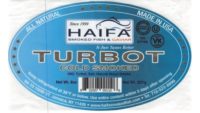A study published by the International Journal of Food Microbiology and designed to verify the effectiveness of Micreos' anti-Listeria phage preparation LISTEX in reducing Listeria monocytogenes on ready-to-eat (RTE) roast beef and cooked turkey showed initial reductions of L. monocytogenes of 2.1 log10 CFU/cm2 and 1.7 log10 CFU/cm2, respectively.
In the study conducted at the University of Guelph, Ready-To-Eat (RTE) meat cores at 4° and 10 °C were inoculated with cold-adapted L. monocytogenes to result in a surface contamination level of 103 CFU/cm2. LISTEX was applied at 107 PFU/cm2 and samples taken at regular time intervals during the RTE product's shelf life.
LISTEX was effective during the incubation period at 4 °C with initial reductions of L. monocytogenes of 2.1 log10 CFU/cm2 and 1.7 log10 CFU/cm2, respectively, for cooked turkey and roast beef. The presence of the Micreos phage resulted in lower L. monocytogenes numbers, relative to the untreated control, of about 2 log CFU/cm2 over a 28-day storage period at 4 °C. An initial L. monocytogenes cell reduction of 1.5 log10 CFU/cm2 and 1.7 log10 CFU/cm2, respectively, for cooked turkey and roast beef was achieved by the phage at 10 °C (abusive temperature).
The study showed that LISTEX causes an important initial reduction of L. monocytogenes numbers and can serve as an additional hurdle to enhance the safety of RTE meats.
LISTEX is suitable for natural and organic products, does not influence the organoleptic properties of the treated products and does not require labeling.
More information and a copy of the study are available from Dirk de Meester, Director of Business Development, Micreos Food Safety at D.Demeester@Micreos.com.





Report Abusive Comment